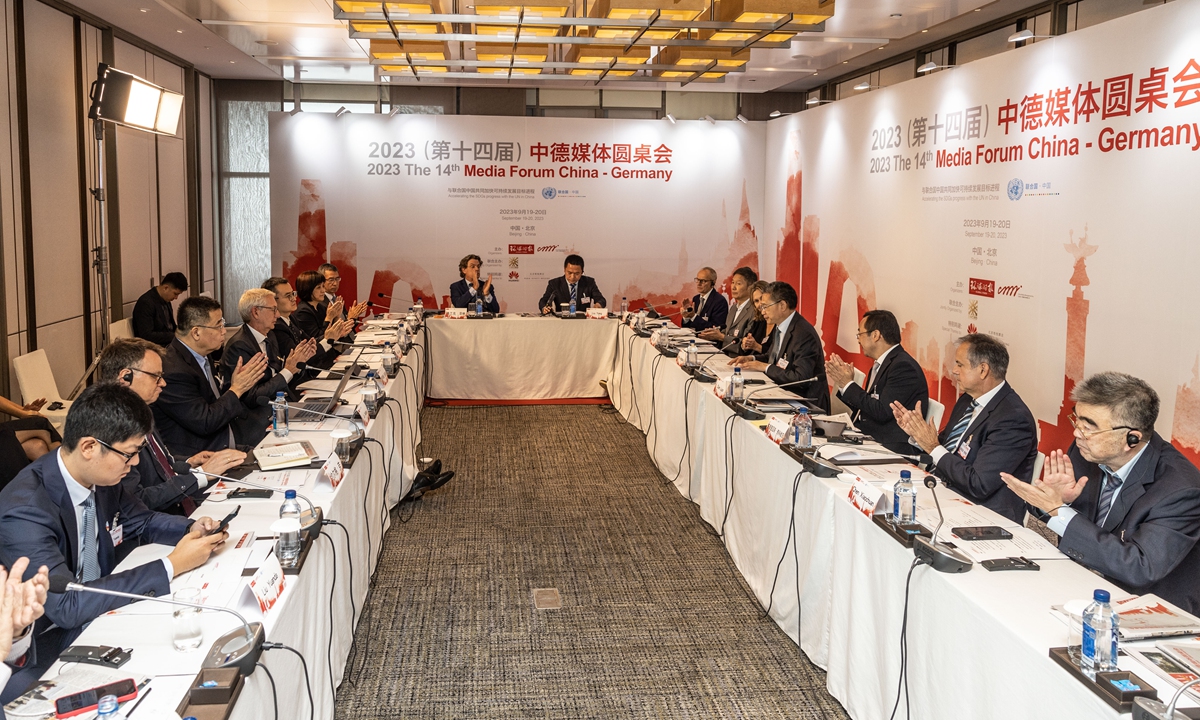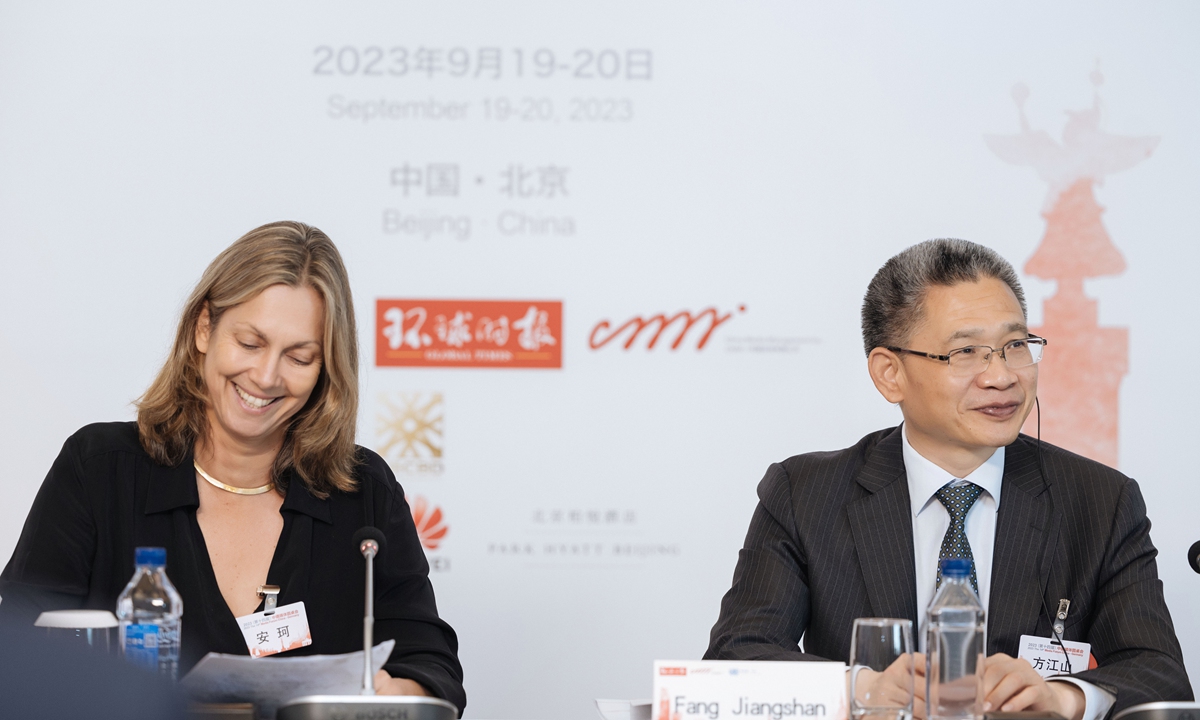Chinese, German media heads meet in Beijing
Representatives agree to maintain exchanges, avoid 'decoupling'

The 14th Media Forum China-Germany Photo: Li Hao/GT
The 14th Media Forum China-Germany, hosted by the Global Times and China Media Management Inc, was held in Beijing from Tuesday to Wednesday. During the forum, participants from mainstream media of the two countries discussed topics such as how to avoid decoupling and derailing, seeking exchanges when the world is in turbulence, the challenge of disinformation, as well as the China-proposed Global Development Initiative and UN Sustainable Development Goals (SDGs).
Fang Jiangshan, deputy editor-in-chief of the People's Daily, Chen Lujun, president of the China News Service, Dai Xiaojing, president of SEEC Media Group, Bai Yansong, news presenter of China Media Group, Chen Xiaochuan, former editor-in-chief of China Youth Daily, Liu Yadong, dean of School of Journalism and Communication in Nankai University and former editor-in-chief of the Science and Technology Daily, Bai Long, deputy editor-in-chief of the Global Times, and other representatives of Chinese mainstream media attended the forum.
Representatives from German media including Andreas Cichowicz, editor-in-chief of Nord Deutscher Rundfunk, Joachim Dorfs, editor-in-chief of Stuttgarter Zeitung, Wolfgang Krach, editor-in-chief of Suddeutsche Zeitung, and Jorg Lau, international correspondent of Die ZEIT attended the forum and had in-depth discussion with their Chinese counterparts.
Melissa Fleming, under-secretary-general of the UN for Global Communications, addressed the forum through a prerecorded video. Siddharth Chatterjee, UN Resident Coordinator in China, also attended the forum and joined the discussion with the participants on Tuesday.
In the past 14 years, the forum has been held annually and alternatively between China and Germany, while during the years of the pandemic from 2020 to 2022, it was held via video link.

Fang Jiangshan, deputy editor-in-chief of the People's Daily (right) Photo: Li Hao/GT
In his opening speech on Tuesday, Fang said that the forum, as an important annual event for media professionals from both countries, provides a beneficial platform for media exchanges and cooperation. He also noted that while the world is undergoing unprecedented changes in various aspects and the China-Germany relationship faces significant challenges, there are also tremendous development opportunities.
"As media professionals from China and Germany, we should approach the development of bilateral relations from a strategic perspective, actively fulfill our media responsibilities, utilize our unique communication power and foundation of trust, adhere to the principles of rationality, objectivity, and comprehensiveness, and present the true picture of the Chinese and German societies based on facts, common sense, and logic," Fang remarked.
"We should play a positive role in enhancing mutual understanding, promoting friendship, creating a favorable public opinion atmosphere, and contributing to the enrichment of the comprehensive strategic partnership between China and Germany," Fang said during his speech.
In her video speech, Fleming introduced the challenges brought by disinformation in the era of social media and the rapid development of digital and AI technology. She welcomed the media professionals of China and Germany, as well as other countries, to maintain and boost communication and contribute to a balanced environment for global communication.
During the two-day forum, media representatives from both China and Germany agreed on the importance of seeking consensus and cooperation and expressed a willingness to maintain communication and exchanges in the future. Some German representatives expressed that China's right of development should be respected, even if it sometimes affects the interests of Western developed countries. In the past, the automotive industry was considered a symbol of Germany, but now the Chinese automotive industry has reached the same level as Germany in the field of electric vehicles. The correct attitude for Germany should be to encourage its own companies to do better and engage in healthy competition with China, rather than decoupling, according to attendees of the forum.

